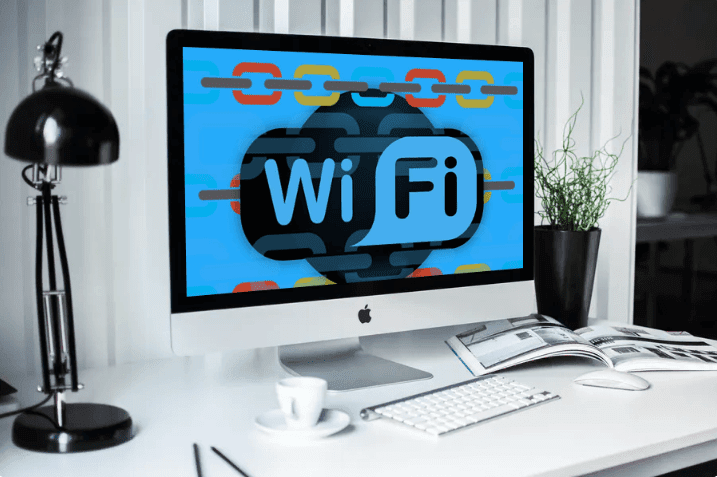Public Wi-Fi hotspots are honeypots for hackers as they can access users’ information without their realization. But unfortunately, people still prefer to use public Wi-Fi networks when it comes to browsing the web at public places or on the go.
Compared to personal or home Wi-Fi hotspots, public Wi-Fi hotspots are insecure and prone to various kinds of security risks such as hacking, identity theft, data loss, etc. Therefore, you should follow some essential tips that help you protect your privacy when using public Wi-Fi hotspots.
Select the correct network
You should always pick the legitimate network; otherwise, you can become a target of Man-in-the-middle-attack. For instance, you might have seen several network names that look similar when trying to connect to public Wi-Fi like Dreamnet Soho or Dreamnet Sofo. Surprisingly, this is a tested sign of Man-in-the-middle-attack.
In this attack, hackers try to enforce or encourage users to sign-in into wrong networks. This way, they access your crucial information as most of the time, users do not check before connecting to public Wi-Fi and choose networks with strong signals.
However, you must check whether you are connecting to any legitimate public Wi-Fi hotspot because it is a matter of your online safety, which you should not take lightly.
Use a VPN
A VPN lets you remain safe and anonymous while using public Wi-Fi networks. When you install a VPN client on your device, it encrypts your data. Besides, it masks your actual IP address with another alternative IP address of your desired countries like the US, UK, Canada, Germany, Australia, etc.
However, selecting a reliable VPN that secures your digital footprints on the web is no easy task. You have to consider so many factors like jurisdiction, logging policy, price, compatibility, and others before subscribing to any VPN service.
There are numerous VPN providers available in the market that can keep you secure and anonymous over the web. However, ExpressVPN is one of the most famous VPN services since it has ticked all the boxes in terms of performance and value.
But to be on a safer side, you can opt for the free trial of ExpressVPN to save your hard-earned money. This way, you will be in a better position to make the right decision about your privacy. Through its free trial, you can test the performance of its different features like server spread, speed when connected to various servers, unblocking ability if it unblocks the content you want to access, privacy and security features, etc for 30 days with full money back guarantee.
Choose a secure network
Choosing a secure network is not as difficult as you think. When you try to connect to a Wi-Fi hotspot while using a Windows laptop, you will see networks available with a “secured” sign. It means you can connect to these Wi-Fi networks as they seem secure and will not compromise your privacy.
On the contrary, if you connect to an unsecured network, you will receive a warning that says “Security Recommendation.” Hence, you had better connect to Wi-Fi networks that do not give you a prior security warning.
Don’t provide too many information
When you sign up for public Wi-Fi access, you should remain cautious while providing personal information. You can contemplate such information in the form of an email address, cell phone number, etc.
In these situations, you should provide your secondary email address and alternative cell phone number to complete the signup processes. Many restaurants and stores collect so much of their customers’ information when they use their Wi-Fi hotspots because they can use this data for marketing purposes later on.
In reality, you have to decide if you are willing to pass on your sensitive information for the sake of enjoying free internet access; the choice is yours. However, it is not a viable thing to do so as local stores and restaurants may sell your personal data to third-party marketing companies.
Use Antivirus
You should install antivirus software on your mobile device as it can safeguard you against different kinds of malware while using public Wi-Fi hotspots. You will receive an alert indicating any potential virus or malware as soon as you connect to a malicious Wi-Fi network.
Other tips to secure your privacy when using public Wi-Fi hotspots
Aside from following these recommendations, other simple tips allow you to protect your privacy and devices both at the time of using public Wi-Fi networks:
- You should disable the automatic connection feature
- Do not perform any financial transaction on your devices via public Wi-Fi connections
- Once you have used a public Wi-Fi hotspot, always remember to check forget
- Consider using your smartphone as a hotspot instead of relying on insecure public networks for internet access
- Always use two-factor authentication as it secures your personal data from the prying eyes of hackers, snoopers, and other cybercriminals
Wrapping Up
To sum up, securing your privacy while using public Wi-Fi networks is your responsibility. If you do not give importance to your privacy, the chances are that you may end up becoming a target of hacking, phishing, ransomware and other security risks.
Therefore, you must follow the recommendations mentioned above when connecting to a public Wi-Fi hotspot on the go.
